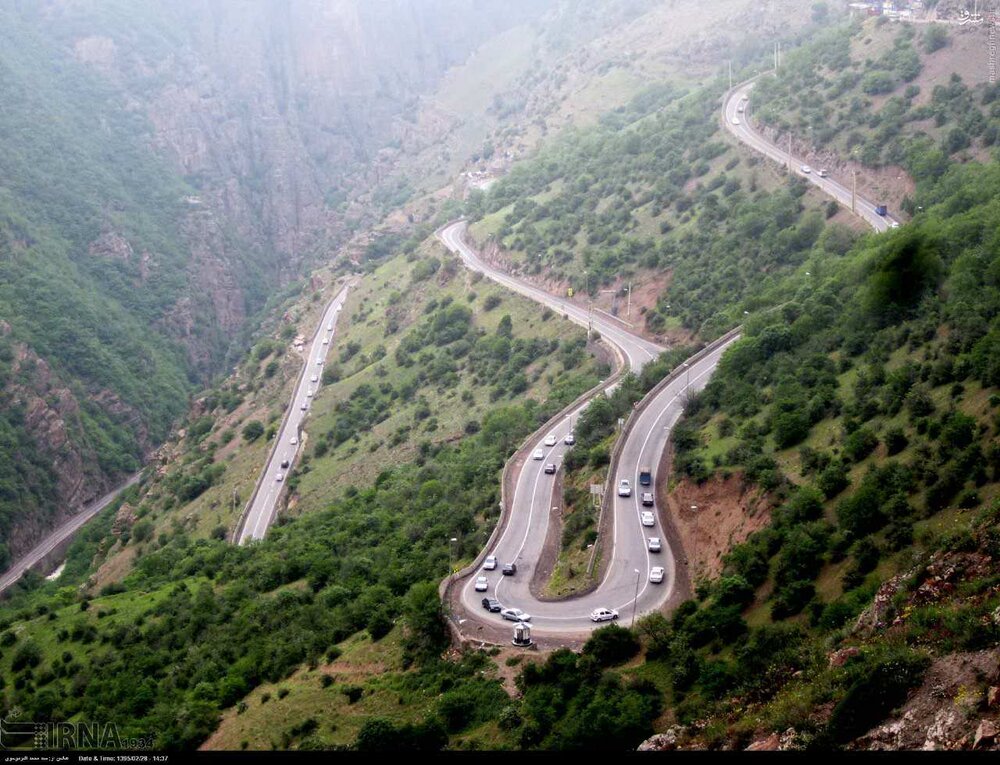Tourism ministry issues guideline to curb pandemic as travels seen to rise

TEHRAN – Iran’s Ministry of Cultural Heritage, Tourism, and Handicrafts has issued a guideline comprising health protocols to lessen coronavirus pandemic as many families are expected to start domestic travels during the upcoming Eid al-Fitr holidays (May 24 and 25).
The move comes following months of travel restrictions in the country and many other parts of the globe, some of which remaining in place to fight the virus outbreak.
“In addition to strongly advising the public to reduce intercity traffic and avoid unnecessary trips to maintain the health of passengers traveling between cities by private vehicles, it is recommended to make sure the vehicle is in good condition and clean and disinfect the inside of the car and door handles,” the guideline reads.
“Before traveling, make sure you have personal protective equipment, such as a disposable glove, a hand sanitizer, and a paper towel. Use masks and gloves when refueling at gas stations. On short trips, eat lightly prepared food at home.”
“On long trips, the only sojourn at stopover centers/restaurants which are under the supervision of the Ministry of Cultural Heritage, Tourism and Handicrafts. And after using public sanitary services, wash and dry your hands thoroughly according to the protocol announced by the Ministry of Health or use a hand sanitizer solution.”
“Upon purchasing any product or food item before use or entering the car, its packaging should be disinfected. Use electronic methods to pay for highway tolls.”
On April 20, Iran lifted intercity travel bans days after President Hassan Rouhani unveiled a “Smart Social Distancing Initiative” as a new phase of measures to prevent the virus spread. Over the past couple of months, many countries, including the Islamic Republic, imposed travel restrictions to help curb the spread of novel coronavirus. In this line, incoming and outgoing flights have been suspended, and road travels restricted to a great extent.
In response to the pandemic, the Ministry of Health has also declared new guidelines and instructions to ramp up the safety in particular for “emergency or work travels” in hotels, guest houses, eco-lodge unites, tourist destinations, transport facilities, recreational centers, and restaurants.
Earlier this month, Jamshid Hamzehzadeh, the head of the Association of Iranian Hoteliers, briefed on practical health policies introduced to hotels, noting “We have declared that a hotel room is disinfected and remain empty after 48 hours of passenger use. Another issue that is important for us is the emphasis on employee health. Also, each passenger should pass through the diagnostic tunnel when entering a hotel.”
Elsewhere in his remarks, Hamzehzadeh announced some 50 percent of hotels across the country had so far been reopened after the hospitality industry took a severe hit from the virus pandemic in both at the national and international levels.
“The shutdown cost Iran’s hospitality industry 45 trillion rials (some $1.1 billion at the official rate of 42,000 rials) over the past three months,” he noted. “We have not made an official announcement in this regard, but hotels in each province are reopening under their condition and coordination with local health departments.”
“Since business trips have commenced, if hotels are not opened, people may go to unauthorized centers, which may lead to harmful consequences,” he said. “We are implementing the health protocols previously announced by the Ministry of Cultural Heritage, Tourism, and Handicrafts.”
Deputy tourism minister Vali Teymouri early in May introduced measures taken to lessen the impact of coronavirus on the tourism sector and future measures to restore the situation, noting “A smart travel protocol, which is aimed to reassure healthy travels, has been developed to be implemented across the country.”
“The smart travel protocol states what considerations a hotel, agency, or tour guide should follow. It’s as if accommodation units need to focus more on renting one-bedroom than two-bedroom. Or if the hotel has been closed until now, with what considerations will it start working and under what conditions will it accept passengers. These cases are detailed in the present protocol we should revise its articles using the opinion of the relevant organizations.”
In response to a question that if travel ads are illegal in face of the virus pandemic, Teymouri said: “We have not officially announced anything for tourism advertising, but in the form of a smart trip, we have addressed the issue of whether they should advertise tourism activities, of course, if the coronavirus is due by the end of the holy month of Ramadan.”
Some experts expect Iran to achieve a tourism boom after coronavirus contained, believing its impact would be temporary and short-lived for a country that ranked the third fastest-growing tourism destination in 2019.
The latest available data show eight million tourists visited the Islamic Republic during the first ten months of the past Iranian calendar year (started March 21, 2019).
For Muslims, Eid al-Fitr marks the end of the holy month of Ramadan. It’s a joyful holiday when the faithful celebrate 29 or 30 days of dawn-to-sunset fasting.
AFM/MG
